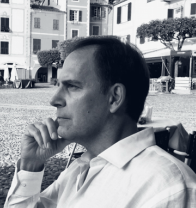|
Predictions that democracy is no longer a preferred way to organize and govern nations are premature. Democracy is still the best way to synthesize the optimal allocation of resources with protection of individual rights. What must change is the form of democracy that emerges to address the current deficiencies of representative democracies around the world. Representative democracy as currently practiced is not capable of keeping up with technological change nor the complexity of societal problems. The next and necessary evolution of democracy is already here in nascent form. It is “Distributed Democracy”.
Throughout history, democracy has continuously evolved as a form of governance. It is believed to have started with proto democracies that emerged from primitive hunter gatherer societies. Let’s call that the beta version of democracy. Version 1.0 is usually credited to Cleisthenes, who implemented a version of Athenian democracy that contains the source code we still rely upon in modern democracy. Version 4.0 is the unique American form of constitutional democracy that successfully integrated Greek, Roman, and European structures and principles. In 2020, it is becoming apparent worldwide that it is time for an upgrade. The next upgrade should be Distributed Democracy. A consensus definition of Distributed Democracy has yet to emerge but is best to think of it as crowdsourced problem solving for intractable issues at the local, regional, and national levels. Distributed Democracy is the best approach to governance in a complex world because it relies on a much broader — and better qualified — set of inputs from the governed for solutions to problems we all face at different levels. We, the governed, need to influence government all the time and not just during election cycles. For example, the COVID19 crisis has painfully illustrated that politicians are not qualified to manage certain complex problems. Instead, we need to engage the most well-informed and qualified among us to help us navigate the best solution to complex problems. In a fully networked, always-on world government needs to maintain the pace of society and anticipate problems we will face. Most representative democracies today focus on selection of individual officials or leaders to serve as decision proxies for their constituents. This approach was not efficient in an analog world. In a digital world, the approach does more harm than good. It would be hard to design a less efficient system of governance in a world dominated by rapid technological change and the need for daily government input on tens of thousands of issues. Our representatives are constrained by their own limitations, such as their individual experiences, education, influences, and resources. Due to such constraints, politicians and special interests generally default to a few ineffective responses such as: over simplifying issues in communications with constituents, ignoring the issue or deferring timely decision making, passing rules that assuage the most vocal or powerful interests in their constituencies, or engaging in investigations that signal activity while they abrogate their primary responsibility to legislate. In a distributed democracy, we can leverage technology to identify and detail the best crowdsourced solutions to the most difficult problems we face. James Surowiecki named it the “Wisdom of Crowds” in 2004 in his book of the same name. Many researchers have validated the wisdom of crowds. Complex problems are often better solved with solutions sourced from opinions or inputs on a massive scale. Distributed Democracy will harness technology to achieve massively scaled solutions to complex problems. Rudimentary forms of distributed democracy are already used extensively throughout the country. They usually take the form of ballot initiatives or referendums. Think about all the problems we collectively face as a society. Everyday we heavily rely upon subsets of highly qualified people among us to help us navigate the complexity of life: highly educated teachers, trained automobile mechanics, healthcare specialists, and computer programmers fluent in specialized coding skills. Elected government is the exception. We pick representatives who are generalists at best and usually ill-equipped to solve massive issues like health pandemics, global warming, or systemic poverty. It’s not for lack of motivation or effort. Most politicians are well intentioned, but the system does not support realization of their lofty ambitions. Politicians narrowly win periodic popularity contests with vague expressions of how they will fix problems of extraordinary complexity. They cannot fix these problems. It is absurd for us to think the issue is a matter of personal character or political philosophy that will be solved simply by electing a better representative or the other political party. It is time for Americans to call for a series of modern Constitutional Conventions. The purpose is to draft and recommend a revised strategy for attaining a “more perfect union”. We can select and elect the best minds among us from every state to envision improvements or amendments to the Constitution. These efforts can run parallel to normal activities of our government. If a better Constitution can be realized, the wisdom of the crowd that the Founders empowered will prevail. If a better Constitution cannot be realized, we can focus on continuing to improve the one we have. Copyright 2020 Jeffrey Scott Szorik
0 Comments
Your comment will be posted after it is approved.
Leave a Reply. |
AuthorMy name is Jeffrey Szorik. I am an average citizen with a lifelong interest in legislative politics. Like you, I would prefer our political representatives focus on the priorities & preferences of the majority of the electorate they are entrusted to represent. Restoring confidence in our political system depends on it. Join me, as together we explore how to restore 'government by the people and for the people.' Archives
August 2020
Categories |


 RSS Feed
RSS Feed